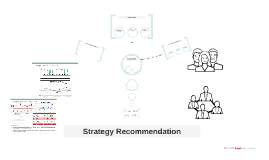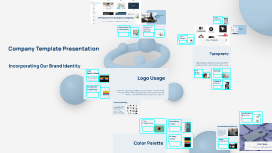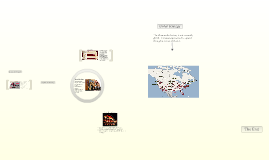Company Strategy Presentation
Transcript: Investment in Virtual and Augmented Reality Innovations at Meta Meta plans to allocate up to $40 billion in 2024 towards innovative projects in virtual and augmented reality. This substantial investment highlights the company's commitment to leading advancements in immersive technologies and the metaverse. Meta is revolutionizing the tech landscape with groundbreaking innovations such as advanced AI tools, augmented reality devices, and enhanced social media features. These developments aim to empower creators, enhance user experience, and solidify Meta's position as a leader in technology. Introduction of MovieGen AI Enhanced Features for Instagram and Facebook Meta's new 'MovieGen' AI tool generates realistic videos with sound, streamlining video production. This technology requires minimal input, marking a significant advancement in content creation, potentially transforming film, media, and entertainment industries. Meta continues to innovate on its platforms by adding features such as GIFs in comments and enhanced video editing capabilities for Reels. These updates empower content creators to engage more effectively with their audiences and drive platform growth. Development of Orion Smart Glasses AI Chatbot Celebrity Voices During its Connect conference, Meta introduced celebrity voices for its AI chatbot, including renowned figures like Judi Dench and John Cena. This enhancement aims to provide engaging user interactions, bridging the gap between entertainment and technology. Meta is developing Orion smart glasses that incorporate augmented reality features. These glasses are designed to blend real-world experiences with digital information, potentially changing how users interact with their environment. Key Platforms and Services Introduction to Meta Meta operates several leading platforms such as Facebook, Instagram, WhatsApp, and Threads. These platforms provide various features, including messaging, social networking, and content creation tools that cater to diverse user needs. Meta, formerly known as Facebook, embodies a transformative approach in the tech landscape by evolving from a social media platform to a multifaceted technology company focused on innovation and connectivity. Core Mission and Goals Overview of the Company Importance of Meta in Social Media Issues with Fake Ads Company Strategy Presentation A Dutch consumer group, Consumentenbond, claims that 71% of investigated fake shops reach customers via Facebook and Instagram advertisements. Meta has been criticized for insufficiently verifying advertisers' identities, resulting in significant consumer losses and difficulty for authorities in removing fraudulent ads. Challenges and Concerns Meta's core mission is to empower people to connect and share through innovative technology. The company focuses on creating immersive social experiences and enhancing communication across its platforms. Meta is a leading American technology company that operates popular social media platforms including Facebook, Instagram, WhatsApp, and Threads. It aims to connect people, foster communities, and enable business growth through its diverse suite of services. Meta plays a crucial role in shaping digital communication and social networking, with billions of users worldwide. Its influence extends beyond connectivity to setting trends and standards within the social media landscape. Consumer Protection and Regulation Meta faces significant challenges regarding fake ads, regulatory scrutiny, data security, and criticism from consumer groups. These issues impact user trust and the company's reputation, necessitating robust strategies to address them. Meta's perceived failure to act against fake ads has raised concerns regarding compliance with the Digital Services Act. The European Commission is being urged to take action, emphasizing the responsibility of large platforms to block harmful content and protect consumers effectively. Criticism from Consumer Groups Ongoing Internal and External Challenges History and Rebranding to Meta Handling Misinformation Consumer groups have expressed concerns over Meta's lack of proactive measures to address fake ads and misinformation. Increased public scrutiny has led to calls for stricter regulations and accountability from the tech giant regarding user safety and advertising practices. Meta addresses ongoing challenges related to misinformation on its platforms. The company works to implement stronger guidelines and fact-checking systems to combat the spread of false information while striving to enhance user data security measures. Despite significant investments in technological advancements, Meta continues to face internal challenges, including staffing and resource allocation for safety measures. Externally, the company navigates regulatory pressures and media scrutiny, impacting its operational strategies. Founded in 2004 by Mark Zuckerberg, Meta was originally known as Facebook until its rebranding in 2021.

















